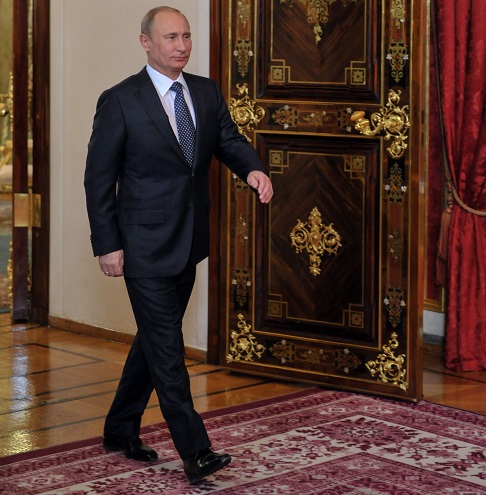6 January 2019 | ANALYSIS
‘Roskomnadzor’, which translates from Russian to ‘Federal Service for Supervision of Communications, Information Technology and Mass Media’ is allegedly preparing to spend up to 20 billion rubles in an attempt to block the social media messaging site ‘Telegram’, the censorship could be in place in early 2019.
This is the latest in an ongoing feud between the Kremlin and the site, and it is an important development which highlights the increasing sceptisim the Kremlin has of the internet in Russia.
The Kremlin’s wariness of the internet, had a step change in 2011 with the Bolotnaya protests, an event which was organised through social media sites and was the biggest visible protest against the Putin regime since he came to power.
Another reason for the Kremlin’s increasing skepticism of the internet is due to the influence of Western dissemination of information which has been largely overstated by elites in Moscow as the cause of the internal revolutions in neighbouring Ukraine and Georgia (Coloured Revolutions), culminating in the violent annexation of Crimea.
Since then, a free internet has presented itself as threat to the Kremlin. More recently young people in Russia have been imprisoned for sharing inappropriate memes, a crime unimaginable in the West, or any country with a commitment to freedom of speech and expression.
There have also been the comments made after the recent school shooting in Kerch, in which Putin blamed the influence of globalisation – specifically the role of American media and the promotion of American culture as the source of this ‘American style school shooting’. The implicit threat here, presumably, being that Russians should no longer have access to news sources and information from the outside world.
Such comments from the Kremlin are always worth considering, and do not represent the empty rhetoric so often criticised in Western politics, as they are regularly substantiated by action. A notable example of this would be Putin’s declaration that all traitors will ‘kick the bucket’, just two weeks before the Salisbury poisonings.
However, the question is, should this be viewed as the Kremlin strengthening its grip on authoritarian power in an attempt to establish a China-style private/domestic/protected internet? Or, rather, does this demonstrate the inherent weakness of the regime?
One of Putin’s main strengths has always been his ability to create the illusion of a democracy for his electorate – the farce of the elections (his ritual inauguration), allowing political opposition to stand against him, or, pretending to uphold the constitution by letting Medvedev ‘serve’ between 2008 and 2012.
Key to this fake democracy, has been the lack of internet censorship, giving Russians the impression that they are making informed decisions and have access to multiple sources of information, thus making Putin appear as genuinely popular and legitimising his position in office. (The reality is 90% of Russians receive their information from the largely state owned television sources).
It seems, such efforts to build the façade of democracy would be undermined by this blatant attack on freedom of expression. If people start to see clearly through the illusion, then the regime’s legitimacy, being derived from a genuine popularity in the country, may well get lost too.
This drive for increased control over the internet and social media demonstrates the Kremlin’s inability to coerce or persuade its population on any level – it is no longer confident that it can maintain authority without control over all forms of public discourse.
Previously it had been able to let public support organically develop for the regime, often independent of direct state intervention, but through actions such as the annexation of Crimea and the domineering role played in Syria. Arguably this is a much stronger form of support as it can be construed as authentic, as opposed to the mechanical shutting down of social media sites.
The developments will continue, and this is only one stage of the complicated relationship between the Kremlin and the internet, however throughout it will be worth considering whether what ostensibly appears like the strengthening of the Kremlin’s position (increased censorship of the internet), could, in fact, represent its weakening.
Patrick McGovern is a postgraduate student. His interests include Anglo-Russian relations and the politics of the European Union.
















